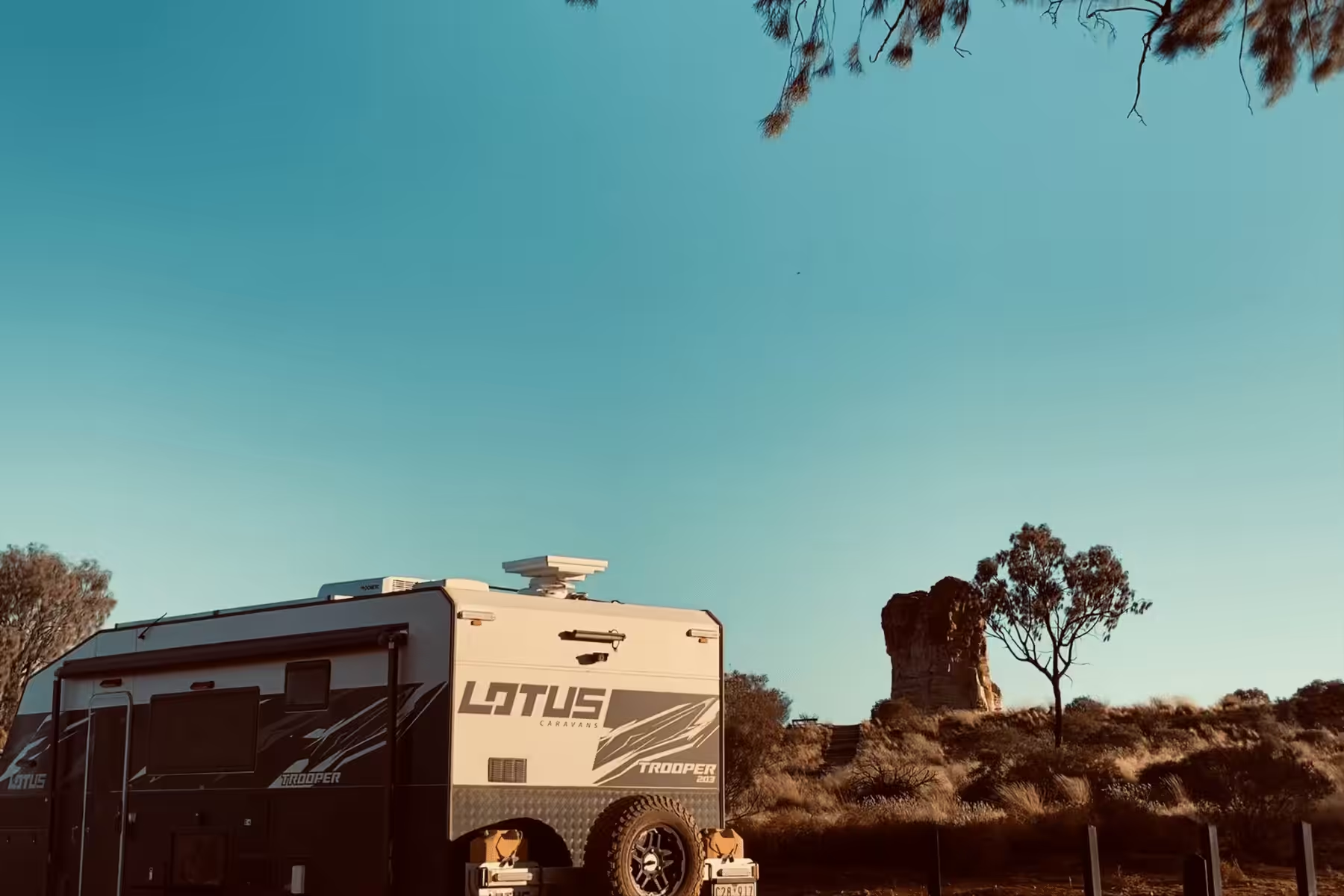


Wait, a hitchless trailer that doesn’t need towing? Is that the dumbest idea ever? How does it even work?
In fact, hitchless towing is a very smart idea and the more I think about it, the more I like it. So hear me out about how it works and then you can decide.
Imagine your caravan but as a dog trailer, not a pig. That means it has four wheels at each corner and can steer itself. Then, add to the trailer an electric motor, battery and brakes but no drawbar. Now the trailer can propel itself. Finally, electronically and wirelessly ‘connect’ the trailer to the tow car – but the ‘tow car’ only controls the trailer’s movements, it doesn’t actually tow the trailer.
Specifically, the trailer just monitors what the tow car is doing – speed, direction – and drives itself accordingly. The tow car speeds up, the trailer speeds up, tow car slows, trailer slows. The trailer would also need some auxiliary sensors to figure out road markings etc, much like any modern car with tech such as lane departure warning. However, this would augment the information from the tow car not replace it.
Are you getting the idea? Turns out Toyota is already onto it.
Now I hear you say, “well that’s just a motorhome isn’t it?” No, it’s not. First, the hitchless towing trailer wouldn’t be designed to carry humans when in motion, so it wouldn’t need driver’s seats or controls, or need to pass any of the usual safety crash-test standards. That would remove significant cost and weight, as well as mean more space in the trailer. The trailer wouldn’t be self-driving either, as it would rely on the human-driven tow car to guide it and provide information so it can follow. In time, the trailer may become self-driving, but hitchless towing is a good stepping stone to that goal.
The next concern is how safe a wireless connection would be with hitchless towing. I’d suggest it’d be at least as safe as wired because with wired, plugs can fall out or corrode etc. At the moment, if your electrical connection disconnects on a wired trailer you won’t know immediately – it’s happened to me – but with wireless, there’d be warnings and the trailer can then brake itself to a safe halt, having four wheels and enough sensors to figure out a basic safety stop. Contrast that to a failed caravan of today relying on a crude emergency brake and trailer chains, with the drawbar scraping on the ground.
Of course, If there’s no physical connection between the tow car and trailer, people may try to move into the gap. So perhaps linking the two with high-viz ropes would be an idea. The ropes would only be there to show the trailer is ‘connected’ to the tow car. In an emergency where the tow car needs to separate from the hitchless towing trailer, the rope links could be easily snapped.
I think that’s it for the ‘why it won’t work’ side of things, so let’s look at the advantages. The first one is no more towing weight worries! No more worrying about TBM, GCM, or complex weights. Just make sure the tow car and trailer aren’t individually overloaded and you’re good to go. The hitchless towing trailer should be able to take a significant load as it’d have four wheels, one at each corner. This is great for load carrying and has no need for driver’s seats or controls. Even a Yaris could ‘tow’ a 5000kg trailer! And there would be less need for driver skill; reversing would be easier, and the trailer could figure out how not to cut a sharp corner. However, the driver would still need to manage the length of the rig, for example when overtaking.
Trailer backing would be easy with hitchless towing too. I would imagine that at slow speed the trailer could be disconnected from the tow car and driven using an app to manoeuvre into parking spots, much easier than backing using the tow car!
Hooking up the trailer would be so simple, just back up close and do something on an app; no more precisely lining up the tow ball, messing with chains and the like.
You’d also be sure you can tow a given trailer. No more worries about the height of the tow ball, 7 or 12 plugs, round or flat, weights…just wireless. Easy as!
If we also assume the trailer is powered by a battery then that will help EV towing range too, which at the moment is miserably short. First, the battery in the trailer will take care of the trailer’s motive power, so the EV’s original range will stand. Second, typically caravans spend a lot of time sitting around doing nothing. So, if it’s plugged in and charging it’s ready to go, and the expansive roof can top up with solar.
So, let’s say you tow your hitchless trailer to a campsite, then spend the day touring in your EV. The caravan spends the day collecting solar energy and maybe trickle-charging. You come back, and charge your EV from your trailer, leaving the trailer enough energy to still make it to your next destination. In short, you’ve got more battery options.
The more I think about it, the more hitchless towing makes sense. I think it’d be safer and easier all round. So, wouldn’t you like an easier tow? Did I miss any pros and cons? Keen to hear your thoughts!